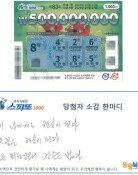Agencies to Introduce No-Car Days
The government has decided to push forward buying overseas oil fields to secure energy supply amid rising oil prices.
Public agencies will start car days beginning next month. Public servants as well as visitors to public institutions will not be allowed to use cars for one predetermined day during the span of Monday to Friday.
These measures were discussed at the Fourth National Energy Advisory Meeting, hosted by President Roh Moo-hyun at Cheong Wa Dae on May 19.
According to the measures, the government decided to buy oil fields in Southeast Asia, Africa, and South America to produce 10 percent of its total crude oil consumption by 2008.
The Ministry of Commerce, Industry and Energy, responsible for buying overseas oil fields, is studying the profitability of oil fields with estimated reserves of over 500 million barrels. This is 62.5 percent of Koreas annual oil imports of 800 million barrels, and it will cost Korea $7.5 billion.
Crude oil produced from these offshore oil fields costs $15 a barrel, which is about 24 percent of Dubai oil that Korea usually imports. Crude oil prices produced from offshore oil fields are lower than that of the international price because there is a risk of output shortages.
Oil prices from offshore oil fields have increased recently, which is burdensome for Korea. We should pursue our plan to buy offshore oil fields while considering the possibility of falling international oil prices, said Deputy Minister for Commerce, Industry and Energy Lee Won-gul.
M&A with foreign small and mid-sized oil companies and Korean private corporations is also being considered.
The won-dollar exchange rate goes up when Korea buys offshore oil fields. Also, from June, mandatory Car Day will be introduced to cars entering public institutions. Cars that have 1 or 6 as the last number of their license plate cannot enter on Mondays, 2 or 7 on Tuesdays, 3 or 8 on Wednesdays, 4 or 9 on Thursdays, and 5 or 0 on Fridays.
Drivers who practice such car days already according to the advice of local governments will face no changes.
Public institutions must maintain room temperatures at 26° Celsius at the lowest in the summer, and 20° Celsius at the highest in the winter.
legman@donga.com







